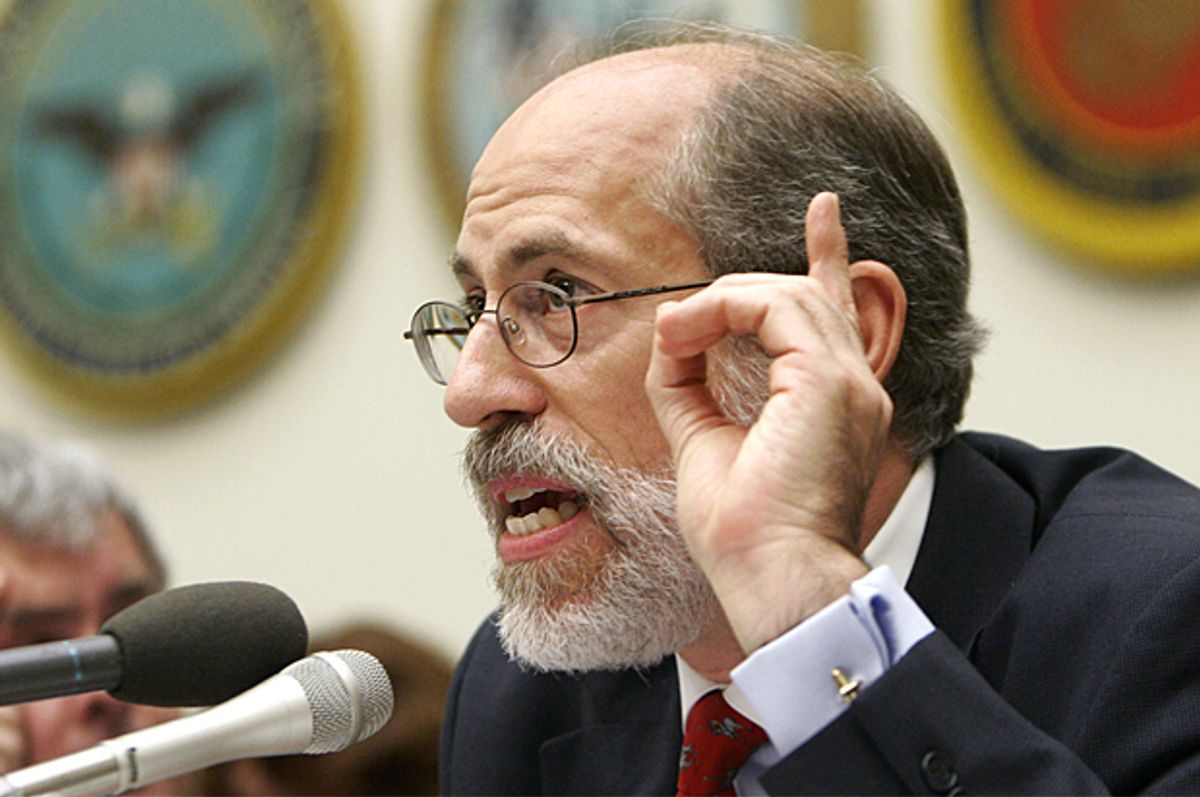The New York Times this week put out a bracing report on the “dark view of Islam” that currently animates policy discussions inside the Trump White House. President Donald Trump’s hostility toward the Islamic faith is, of course, no secret.
He campaigned on a complete ban on Muslim immigration to the U.S. and has fulfilled part of that promise with an executive order shutting down the flow to this country of Syrian refugees and halting travel from seven Muslim nations. Throughout this whole process, Trump and his aides have insisted to the public that these measures are not motivated by bigotry toward Muslims, but rather by real security concerns.
The Times report lays bare the truth of the matter: Trump’s White House views Muslims as a threat and adheres to a cancerous school of thought that casts “Islam as an inherently hostile ideology” whose adherents seek to conquer the Western world.
Of particular note was this quote from Frank Gaffney, the insanely Islamophobic crank who runs the disreputable Center for Security Policy:
In an interview, [Gaffney] explained his view of Islam, which focuses less on the violent jihad of Al Qaeda and the Islamic State than on the quieter one he sees everywhere. By his account, potential enemies are hidden in plain sight — praying in mosques, recruiting at Muslim student associations and organizing through mainstream Muslim rights groups — and are engaged in “this stealthy, subversive kind of jihad.”
“They essentially, like termites, hollow out the structure of the civil society and other institutions,” Mr. Gaffney said, “for the purpose of creating conditions under which the jihad will succeed.”
For anyone who is at all familiar with longstanding anti-Semitic tropes and the dehumanizing propaganda of Nazi Germany, any comparison of a religious minority to verminous and destructive insects should be familiar and extremely alarming. Jews in the 1920s and 1930s were persistently demonized as parasites and stealth invaders who conspired to undermine a society from within so that a scary, radical ideology — in that historical instance, Bolshevism or socialism — could gain a foothold. Gaffney has adopted the framework of that pernicious stereotype and redirected it towards Muslims.
Talk like this is all the more worrisome given the level of influence Gaffney has with top Republicans. High-ranking GOP officials and presidential candidates attend the Center for Security Policy’s National Security Action Summits. Gaffney was a foreign policy adviser to the presidential campaign of Sen. Ted Cruz, R-Texas, who as a candidate proposed “empower[ing] law enforcement to patrol and secure Muslim neighborhoods before they become radicalized.” The Gaffney school of thought, which treats Islam — not just “radical Islam” — as an existential threat to society has considerable currency within the GOP.
This is especially true of the new Trump administration, as the Times report noted. Top White House advisers Steve Bannon and Michael Flynn are both on the record espousing Islamophobic viewpoints. And senior administration officials have no problem talking to reporters about how their chief concern is that too much Muslim immigration to the United States will result in a permanent domestic security threat.
The Los Angeles Times reported earlier this week on Trump’s inner circle of advisers, who believe “that if large numbers of Muslims are allowed to enter the U.S., parts of American cities will begin to replicate disaffected and disenfranchised immigrant neighborhoods in France, Germany and Belgium that have been home to perpetrators of terrorist attacks in Europe in recent years.”
According to that report:
Within decades, Americans would have “the kind of large and permanent domestic terror threat that becomes multidimensional and multigenerational and becomes sort of a permanent feature,” one senior administration official argued.
“We don’t want a situation where, 20 to 30 years from now, it’s just like a given thing that on a fairly regular basis there is domestic terror strikes, stores are shut up or that airports have explosive devices planted, or people are mowed down in the street by cars and automobiles and things of that nature,” the official said.
It’s thinking like this that has me worried about what the White House would do in the aftermath of a large-scale terrorist attack in the United States. Right now, the Trump administration’s hostility towards Muslims is directed outward and focused on preventing Muslim immigrants from entering the U.S. But the Trump team clearly harbors a high level of suspicion toward Muslim communities inside the country as well, and an ingrained assumption that people in those communities represent a security threat that must be controlled or contained. Comparing human beings to destructive insects, including one's neighbors and fellow citizens, raises the potential for extremely bad outcomes.



Shares